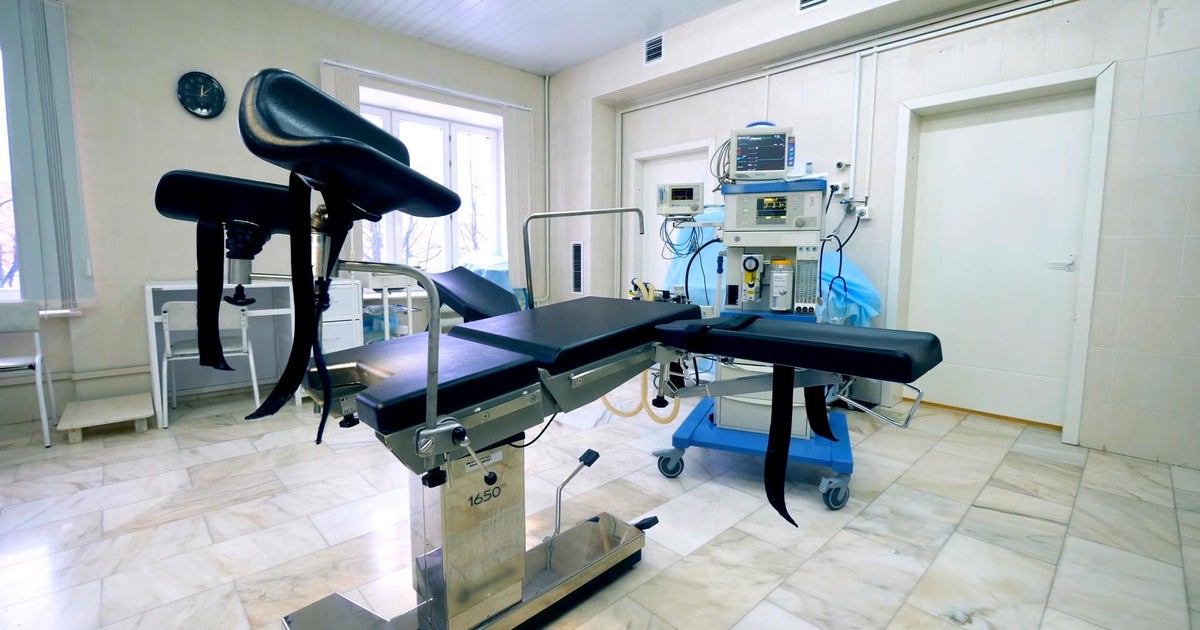Montana
Group kicks off signature gathering efforts for Montana abortion access ballot petition • Daily Montanan

The group behind a ballot petition to enshrine abortion access in Montana’s constitution formally kicked off its signature gathering campaign Tuesday, telling supporters it is critical the initiative pass in November if Montanans want to avoid restrictions being imposed like those in Texas and other Republican-led states.
Montanans Securing Reproductive Rights had already started gathering signatures to try to get Constitutional Initiative 128 onto November’s ballot last week in some of the state’s most populous cities, but Tuesday’s event at Mt. Ascension Brewing Company in Helena marked its official start to its effort to gather more than 60,000 valid signatures from Montana voters by the June 21 deadline.
“Abortion is a topic that’s become politicized and stigmatized, but in reality, we all love someone or are someone who’s had an abortion,” said Martha Fuller, the CEO and president of Planned Parenthood Advocates of Montana, one of the organizations that makes up Montanans Securing Reproductive Rights. “We can no longer let politicians threaten access to the lifesaving, essential care that thousands of Montanans need and deserve. Montanans must act now to proactively secure our right to abortion and CI-128 will protect the rights that we currently have for good.”
Speaking to several dozen supporters, members of the group, which also includes the ACLU of Montana and Forward Montana, said they believe Republican lawmakers in Montana will continue to push the bounds of the 1999 Armstrong v. Montana Supreme Court decision that found Montanans’ right to privacy includes a right to abortion access.
They said passing the initiative in November would ensure the legislators do not continue creating laws restricting that access after the U.S. Supreme Court overturned Roe v. Wade and put decisions about abortion access back into the hands of the states.
Dr. Sam Dickman, an abortion provider and physician who is the chief medical officer of Planned Parenthood of Montana, was nearly brought to tears as he recounted working in Texas when its abortion ban took effect and seeing patients have to travel to other states for care, and others who were pregnant after being sexually assaulted being forced to carry the pregnancy to term.
He said while the current court precedent has upheld abortion access in Montana, passing the constitutional amendment would ensure that lawmakers or courts couldn’t take that access away overnight. He cited the Arizona Supreme Court’s recent decision upholding a law passed before Arizona became a state as an example of how quickly the landscape can change for patients and providers.
“Montanans deserve dignity; they deserve the right to make medical decisions for themselves and their families, and no politicians should interfere with those decisions,” Dickman said. “I’ve seen what those abortion bans lead to, and we don’t want to see those consequences here in Montana.”
Fuller said the group already had at least 400 volunteers signed up to help gather signatures and promote the campaign. Akilah Deernose, the executive director of the ACLU of Montana, said she believed efforts by the attorney general to keep the group from moving their initiative forward reinforced the group’s stance that abortion access is still under threat, and that has invigorated supporters.
Mikayla Pitts, the voter engagement and reproductive rights organizer for Forward Montana, said in the months the group has been doing voter registration drives on college campuses this year, she’s heard from many students interested in supporting the initiative.
Emma Foster, a Montana State University student, and Lily Madison, a high school junior, both said that younger people they had spoken with were energized by the campaign because it could have a large say in whether they want to stay in Montana for college or their careers.
“Attacks on our fundamental rights are bad for Montana. They cost us students, workers, doctors and businesses, and they make young people like myself feel like the state doesn’t value our rights and who we are,” Foster said.

The group said the signature gathering effort would be focused in Montana’s larger population centers, but that they have volunteers ready to go in more rural parts of the state as well since they have to gather signatures from 10% of the voters in 40 different state House districts.
“I think it’s going to be a volunteer effort like you don’t see with a lot of ballot measures,” Fuller said. “People are really engaged.”
She said the group will not be participating in Thursday’s Law and Justice Committee hearing on the initiative. Republican lawmakers decided to hold the hearing in order to give the measure an up-or-down vote despite the Montana Supreme Court already ruling that the initiative did not need to go through the committee hearing because of the way the law is written and that the committee’s vote will not be recorded on the ballot petition.
“I think that we’ve seen a lot of theater so far around this ballot measure and we are just ready to get to work and leave the theater up to politicians,” Fuller said.
The group said it was prepared to fight any other possible legal battles surrounding the initiative and the validity of the signatures it gathers should they arise, but their hope is to put the matter of abortion access to rest through a citizen-approved amendment to the constitution that legislators cannot change through lawmaking.
“Some legislators come into this town to rip our rights away instead of defending our constitutional rights and embracing freedom,” Pitts said. “Legislative session after legislative session, they push more extreme bans, and we’re tired of it. And we’re going to tell them at the ballot box.”
ci-128

Montana
Federal judge temporarily blocks confusing Montana voter registration law

HELENA, Mont. (AP) — A federal judge has temporarily blocked a Montana law that appeared to require people to cancel any previous voter registrations before signing up to vote in the state, or risk facing felony charges.
U.S. District Court Judge Brian Morris said Wednesday that he agreed with the plaintiffs who argued the law was vague and overbroad and could cause people to decide not to register to vote for fear of being charged with a crime. The penalties include fines of up to $5,000 and up to 18 months in prison.
“The Court’s ruling protects Montanans and their constitutional rights by ensuring that a simple act — registering to vote — does not turn Montana citizens into felons,” said Amanda Curtis, president of the Montana Federation of Public Employees, which is one of the plaintiffs.
The lawmaker who sponsored the bill during the 2023 legislative session said it was meant to make it clear that people can’t double vote. That is already illegal under federal and state law.
The problem with the law, attorney Raph Graybill said Thursday, was that it didn’t create a clear process for someone to cancel their previous registrations.
“The basic principle is if you’re going to create a crime, the rules have to be clear enough that people can avoid becoming criminals, and this law does not meet that requirement,” said Graybill, who represents the public employees and the Montana Public Interest Research Group. Both plaintiffs said the law would hinder their efforts to register new voters.
The lawsuit was filed last September against Secretary of State Christi Jacobsen, Attorney General Austin Knudsen and Commissioner of Political Practices Chris Gallus. The Attorney General’s Office is defending the state. Knudsen’s press secretary, Chase Scheuer, said the agency was reviewing the order to determine its next steps.
The current voter registration form requires people to list their previous registration, but the new law wasn’t clear if providing that information satisfied a person’s responsibility to de-register, said Graybill, the running mate of Ryan Busse, who is seeking the Democratic nomination for governor in the June primary.
Montana election clerks can notify clerks in other counties if a voter’s registration changes, but Montana is not part of a national database that would allow it to inform other states about new voter registrations, election officials have said.
The state opposed the motion for the temporary injunction, saying it was not enforcing the law.
Graybill said the plaintiffs’ response was, “the fact that you’re not enforcing an unconstitutional law doesn’t make it constitutional.”
Enforcement of the law is blocked until the case is heard in court, Morris wrote.
Copyright 2024 The Associated Press. All rights reserved.
Montana
On second thought: Montana Supreme Court decides not to give attorneys' fees to groups • Daily Montanan

As tensions between two of three Montana branches of government continue to simmer, the Montana Supreme Court reconsidered its position on awarding attorneys’ fees in a case of unconstitutional laws brought by the 2021 Legislature. And, it essentially overturned itself, this time agreeing not to award attorneys’ fees.
It is a rare example of the state’s highest court rehearing a matter it had decided, and late last week, the court fractured into at least four distinct camps on the case, which not only dealt with attorneys’ fees, but also examined the powers of the the Montana University System Board of Regents and the Montana Legislature.
The group consisted of 15 people or groups, including the Montana Federation of Public Employees, the state’s largest union, the Faculty Senate of Montana State University and Mae Nan Ellingson, one of the living original members of the 1972 Constitutional Convention. They had originally sued for a declaration that House Bill 349, 112, 102 and portion of Senate Bill 319 were illegal. They all dealt with higher education in some form, although those bills, which have been struck down, were not the basis of the Supreme Court decisions.
The new decision comes as Montana Senate Republicans launch a committee that is looking at ways to reshape the state’s judiciary. A similar committee was convened in 2021 by Republican leaders in the Legislature, and was the topic of heated political disagreements as the Republicans charged the state’s courts were both opaque and overstepping their boundaries. Meanwhile, Democrats defended the courts, saying they were simply doing their job, evaluating new laws against the state’s Constitution.
The new committee is comprised of Republican lawmakers, and Democrats have vowed to boycott the proceedings.
On Friday, the Montana Supreme Court changed course and decided against awarding attorneys’ fees to groups that brought a suit contending that four bills violated the Montana Constitution. All three of the bills were struck down by a Gallatin County District Court judge, and some of the court’s decision was appealed. However, upon re-examination, the Supreme Court sided with the district court that the Legislature’s actions had overstepped the constitutional provision that gives the Montana University Board of Regents administrative and policy power over the public universities and colleges.
Much of the Supreme Court’s very divided opinion didn’t deal with the subjects of the lawmakers’ bills, which were found to be unconstitutional; rather the high court pivoted to whether a group of university students and professors had the power to bring the lawsuit, and whether they were entitled to recouping attorneys’ fees.
When the Supreme Court originally decided the case, it overturned district court Judge Rienne McElyea’s decision not to award attorney’s fees. The Supreme Court previously argued that because the district court had said the laws were brought in bad faith, meaning the Legislature should have known they violated the Constitution, the groups’ were entitled to attorneys’ fees.
However, upon reconsideration, the Supreme Court was unable to come to enough of a consensus to obtain agreement on the issue of attorneys’ fees, so McElyea’s original decision stands; that means the groups will no longer get attorney’s fees from the state.
On second thought…
The Supreme Court’s decision was one of the more complex decisions, with justices agreeing and disagreeing with each other simultaneously. Five of the seven justices said the groups that originally filed the lawsuit had legal standing to do so.
Meanwhile, Justices Jim Rice and Dirk Sandefur disagreed, in part, saying that the lawsuit should have been brought by the Montana University Board of Regents because they are charged, by the Montana Constitution, with oversight and administration of the university system. They reasoned that if laws passed by the Legislature were problematic, it should have been the regents who responded.
Other justices said that because university students, staff and professors would be affected by the laws that they had legal standing to bring the lawsuit.
“The Board (of Regents)’s failure to initially challenge the subject legislation for whatever reason and its intervening prolonged inaction overwhelmingly demonstrate the necessity for private enforcement,” said Justice Ingrid Gustafson, who wrote parts of the opinion. “The actual student plaintiffs here, who were threatened with actual discrimination, cannot be forced to wait indefinitely for the board to assert its own independence.”
Arguably the most consequential portion of the ruling centered on the issue of attorneys’ fees. Ultimately, the high court ruled that while Montana state law allows attorneys’ fees to be awarded to groups or individuals that successfully sue the government for unconstitutional laws, under a legal theory known as the “private attorney general doctrine,” those fees are discretionary, not mandatory.
The court then reconsidered the findings of McElyea, and some justices reasoned that while there were several points that could have triggered an attorneys’ fees award, it was discretionary so the finding of lower court should be upheld.
However, in the opinion written by Justice Gustafson, and joined by Laurie McKinnon, both said that they still found that not only had the Legislature acted in bad faith when passing the laws, but that it could be argued that the Board of Regents should have fought back against the Legislature’s encroachment on their authority. Furthermore, the groups should be awarded the attorneys’ fees for essentially having to do someone else’s job.
“While we need not make a judicial determination of bad faith in this case, there are indications where one could question whether the state was not entirely acting in good faith by defending all of the bills at issue here. One such indication is that the state did not even brief any merits defense for two of the three challenged bills after the district court declared them unconstitutional. Yet the state, in its zeal to impose unconstitutional legislative enactments against the board and the Montana University System, continue to assert the plaintiffs could not even bring the claim against those laws the state concedes are unconstitutional.”
They also argued that the groups should be awarded attorneys’ fees for actually vindicating rights found in the Montana Constitution, namely those of the Board of Regents’ and its authority over the university system.
“Attorney fees are proper because of the process through which the unconstitutional bills came to be: Patently unconstitutional bills adopted through the willful disregard of constitutional obligation,” the Gustafson-McKinnon opinion said. “Assessing fees when plaintiffs successfully challenge legislation which came about through such unconstitutional means may serve to deter wrongdoing in the first place.”
Meanwhile, Chief Justice Mike McGrath and Justices Beth Baker and James Jeremiah Shea said that while the court could have awarded attorneys fees, that there are many factors that could have triggered the award, and the court would not second-guess the district court because the award is not mandatory.
“As noted by the district court, there was an independent entity of state government here who could have enforced its constitutional authority — the Board of Regents. The board is often willing and able to defend its constitutional authority. Plaintiffs here did not make the necessary showing that the board was unwilling or able, for whatever reason, to challenge these laws,” McGrath wrote.
Finally, Sandefur and Rice didn’t discuss the merits of the case or attorneys’ fees because they argued that the group shouldn’t have legal standing in the case, and that the only group with standing was the Board of Regents.
“Such decisions are inherent to the ‘full power, responsibility, and authority to supervise, coordinate, manage and control the Montana University System,’ and necessarily should be made exclusively by the board itself, not by an amorphous group of surrogates,” said Rice and Sandefur.
Reversal attorneys fees
Montana
The path to a better tuberculosis vaccine runs through Montana

A team of Montana researchers is playing a key role in the development of a more effective vaccine against tuberculosis, an infectious disease that has killed more people than any other.
The BCG (Bacille Calmette-Guérin) vaccine, created in 1921, remains the sole TB vaccine. While it is 40% to 80% effective in young children, its efficacy is very low in adolescents and adults, leading to a worldwide push to create a more powerful vaccine.
One effort is underway at the University of Montana Center for Translational Medicine. The center specializes in improving and creating vaccines by adding what are called novel adjuvants. An adjuvant is a substance included in the vaccine, such as fat molecules or aluminum salts, that enhances the immune response, and novel adjuvants are those that have not yet been used in humans. Scientists are finding that adjuvants make for stronger, more precise, and more durable immunity than antigens, which create antibodies, would alone.
Eliciting specific responses from the immune system and deepening and broadening the response with adjuvants is known as precision vaccination. “It’s not one-size-fits-all,” said Ofer Levy, a professor of pediatrics at Harvard University and the head of the Precision Vaccines Program at Boston Children’s Hospital. “A vaccine might work differently in a newborn versus an older adult and a middle-aged person.”
The ultimate precision vaccine, said Levy, would be lifelong protection from a disease with one jab. “A single-shot protection against influenza or a single-shot protection against COVID, that would be the holy grail,” Levy said.
Jay Evans, the director of the University of Montana center and the chief scientific and strategy officer and a co-founder of Inimmune, a privately held biotechnology company in Missoula, said his team has been working on a TB vaccine for 15 years. The private-public partnership is developing vaccines and trying to improve existing vaccines, and he said it’s still five years off before the TB vaccine might be distributed widely.
It has not gone unnoticed at the center that this state-of-the-art vaccine research and production is located in a state that passed one of the nation’s most extreme anti-vaccination laws during the pandemic in 2021. The law prohibits businesses and governments from discriminating against people who aren’t vaccinated against COVID-19 or other diseases, effectively banning both public and private employers from requiring workers to get vaccinated against COVID or any other disease. A federal judge later ruled that the law cannot be enforced in health care settings, such as hospitals and doctors’ offices.
In mid-March, the Bill & Melinda Gates Medical Research Institute announced it had begun the third and final phase of clinical trials for the new vaccine in seven countries. The trials should take about five years to complete. Research and production are being done in several places, including at a manufacturing facility in Hamilton owned by GSK..
Known as the forgotten pandemic, TB kills up to 1.6 million people a year, mostly in impoverished areas in Asia and Africa, despite its being both preventable and treatable. The U.S. has seen an increase in tuberculosis over the past decade, especially with the influx of migrants, and the number of cases rose by 16% from 2022 to 2023. Tuberculosis is the leading cause of death among people living with HIV, whose risk of contracting a TB infection is 20 times as great as people without HIV.
“TB is a complex pathogen that has been with human beings for ages,” said Alemnew Dagnew, who heads the program for the new vaccine for the Gates Medical Research Institute. “Because it has been with human beings for many years, it has evolved and has a mechanism to escape the immune system. And the immunology of TB is not fully understood.”
The University of Montana Center for Translational Medicine and Inimmune together have 80 employees who specialize in researching a range of adjuvants to understand the specifics of immune responses to different substances. “You have to tailor it like tools in a toolbox towards the pathogen you are vaccinating against,” Evans said. “We have a whole library of adjuvant molecules and formulations.”
Vaccines are made more precise largely by using adjuvants. There are three basic types of natural adjuvants: aluminum salts; squalene, which is made from shark liver; and some kinds of saponins, which are fat molecules. It’s not fully understood how they stimulate the immune system. The center in Missoula has also created and patented a synthetic adjuvant, UM-1098, that drives a specific type of immune response and will be added to new vaccines.
One of the most promising molecules being used to juice up the immune system response to vaccines is a saponin molecule from the bark of the quillay tree, gathered in Chile from trees at least 10 years old. Such molecules were used by Novavax in its COVID vaccine and by GSK in its widely used shingles vaccine, Shingrix. These molecules are also a key component in the new tuberculosis vaccine, known as the M72 vaccine.
But there is room for improvement.
“The vaccine shows 50% efficacy, which doesn’t sound like much, but basically there is no effective vaccine currently, so 50% is better than what’s out there,” Evans said. “We’re looking to take what we learned from that vaccine development with additional adjuvants to try and make it even better and move 50% to 80% or more.”
By contrast, measles vaccines are 95% effective.
According to Medscape, around 15 vaccine candidates are being developed to replace the BCG vaccine, and three of them are in Phase III clinical trials.
One approach Evans’ center is researching to improve the new vaccine’s efficacy is taking a piece of the bacterium that causes TB, synthesizing it, and combining it with the adjuvant QS-21, made from the quillay tree. “It stimulates the immune system in a way that is specific to TB and it drives an immune response that is even closer to what we get from natural infections,” Evans said.
The University of Montana center is researching the treatment of several problems not commonly thought of as treatable with vaccines. They are entering the first phase of clinical trials for a vaccine for allergies, for instance, and first-phase trials for a cancer vaccine. And later this year, clinical trials will begin for vaccines to block the effects of opioids like heroin and fentanyl.
The University of Montana received the largest grant in its history for anti-opioid vaccine research. It works by creating an antibody that binds with the drug in the bloodstream, which keeps it from entering the brain and creating the high.
For now, though, the eyes of health care experts around the world are on the trials for the new TB vaccines, which, if they are successful, could help save countless lives in the world’s poorest places.
2024 KFF Health News. Distributed by Tribune Content Agency, LLC.
Citation:
The path to a better tuberculosis vaccine runs through Montana (2024, April 29)
retrieved 29 April 2024
from https://medicalxpress.com/news/2024-04-path-tuberculosis-vaccine-montana.html
This document is subject to copyright. Apart from any fair dealing for the purpose of private study or research, no
part may be reproduced without the written permission. The content is provided for information purposes only.
-

 World1 week ago
World1 week agoShipping firms plead for UN help amid escalating Middle East conflict
-

 Politics1 week ago
Politics1 week agoICE chief says this foreign adversary isn’t taking back its illegal immigrants
-

 Politics1 week ago
Politics1 week ago'Nothing more backwards' than US funding Ukraine border security but not our own, conservatives say
-

 News1 week ago
News1 week agoThe San Francisco Zoo will receive a pair of pandas from China
-

 World1 week ago
World1 week agoTwo Mexican mayoral contenders found dead on same day
-

 World1 week ago
World1 week agoBrussels, my love? The EU single market is not sexy enough for voters
-

 Politics1 week ago
Politics1 week agoRepublican aims to break decades long Senate election losing streak in this blue state
-

 World1 week ago
World1 week agoEU sanctions extremist Israeli settlers over violence in the West Bank



















